From Eyelid Glue To Chemical Straightening, We Want To Know How You've Conformed To Eurocentric Beauty Standards As A Person Of Color
Hi, I'm Victoria, I'm Greek and Korean. While I didn't know about 'Eurocentric beauty standards' as a 15-year-old, I look back and realize I certainly felt them. Case in point: I used to use eyelid tape and glue (I thought I was so sly and got them from H Mart) to give myself a double eyelid.

Me now, having spent too much money bleaching my hair just to dye it back.
But before I get into that, let's take a second to talk about Eurocentric beauty standards, wherein Eurocentric features — such as big blue or green eyes, small and narrow noses, straight hair, and lighter complexions — are seen as the ideal standard of beauty. Naturally, such a standard excludes features of Black, Latine, Indigenous, Asian, Pacific Islander, and Arab folks.
We've all, at the very least, seen the stories of Black students being forced to cut their hair on the spot in school or extracurricular activities (here, here, and here are just three examples). We also know women are told that interviewing with straight hair improves their chances of being hired over curly hair. (Studies actually show that Black women with natural hairstyles are less likely to get interviewed.)
While Eurocentric beauty standards might seem like something limited to the cover of a magazine, they clearly permeate throughout society — from places of work and education to social dynamics and internal worth. They manifest in concepts of colorism and mejorar la raza, in procedures like nose jobs and double eyelid surgery, and in products such as skin bleaching creams and chemical hair relaxers.
Unfortunately, the messaging to conform to Eurocentric beauty standards starts young. Children in elementary school feel the pressure to fit in with their peers or even learn at home how to assimilate from family. It extends beyond personal preference or insecurity to social advantage. So, I want to know: If you're a person of color, how have you conformed to Eurocentric beauty standards? What kind of pressure were you feeling? How did you come to find whatever method or product you used to do so? Do you still do so, and why?
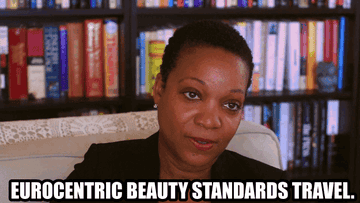
BuzzFeed Video
Like most teens of the late '00s/early '10s, I was obsessed with cat eyes and double wings and smokey eyes — you name it. Except, when you have hooded eyes or monolids, you learn real quick that those YouTube tutorials don't work for you. So, when I learned about eyelid tape and glue to force my eyelids into a double lid and let me keep up with all these makeup trends, I was hooked.
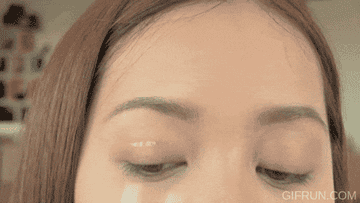
Michelle Phan / Via youtube.com
To be fair to Michelle Phan, in this video, she shows how she makes her eyelids even when her eye folds look uneven (for instance, if her right eyelid has a bigger or more noticeable fold than the left). She wasn't directly advocating you use eyelid glue or tape to turn a monolid into a double lid.
However, double eyelids are very revered in East Asia. Many Koreans get double eyelid surgery, courtesy of their parents, as teenagers. It's basically a rite of passage. So, it was easier to buy into when, while seeking validation, it was further promoted within my own culture — and to the point where they've created these products for it.
My relatives have gotten it done, so what was the big deal? They seemed happier. It didn't help that I was called "chink" in middle school, and other girls asked another Asian student if they "see in wide screen." Like, what the fuck?
Sure, I was pretty nervous people would be able to tell and all, but I didn't care. While I did stop using it during high school, it actually wasn't until after college that I really began to appreciate my natural eyelid and eye shape.
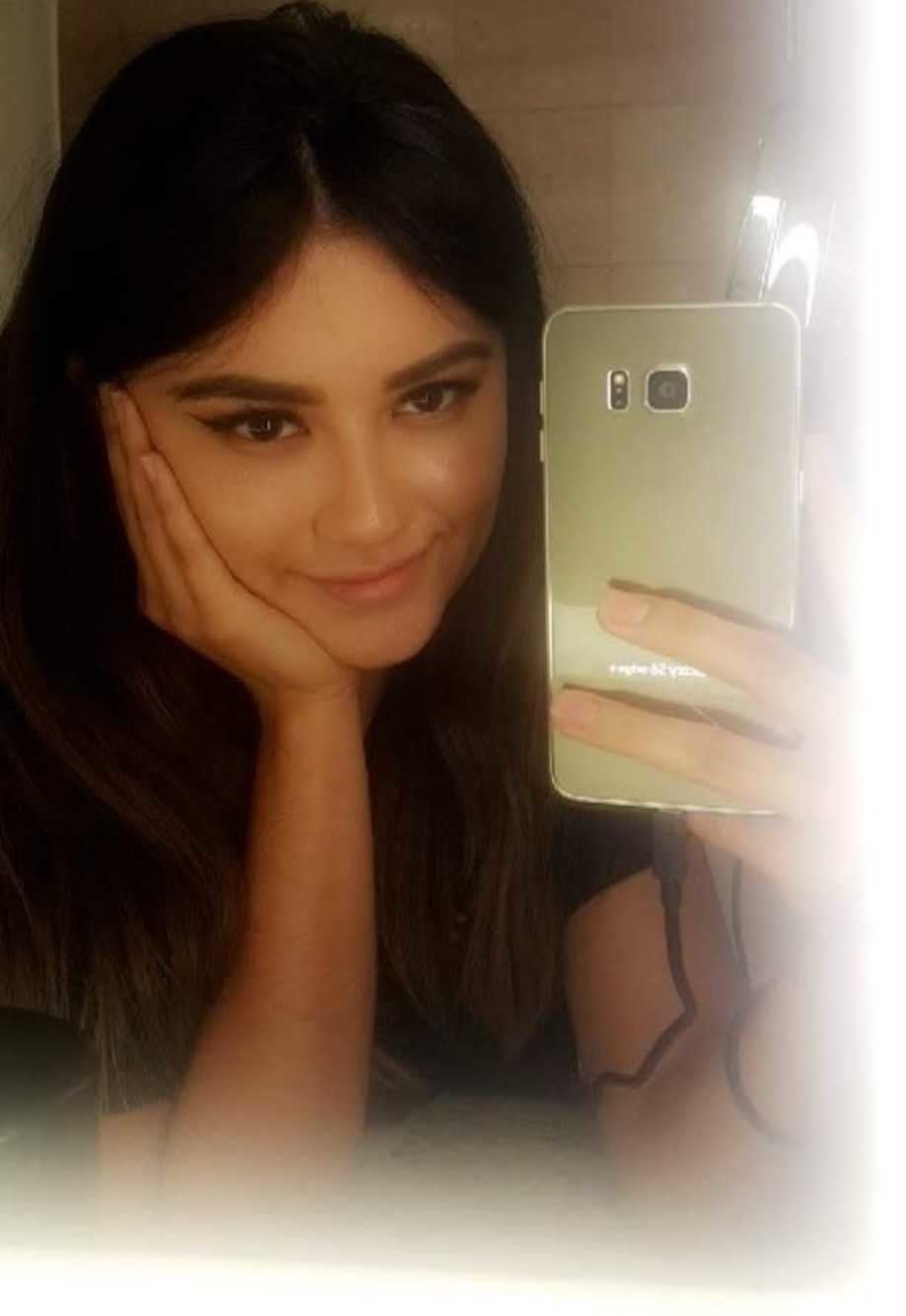
^College me in a classic mirror selfie.
That's just one of my examples, and as I've gotten older and we've reflected on beauty standards more as a society, I've talked to others who also felt alone and struggled to conform to beauty standards — often without even realizing how harmful the standards and the methods for conforming to them were. Alternatively, some people continue to apply these beauty methods out of necessity, so as to fit in at work or school.
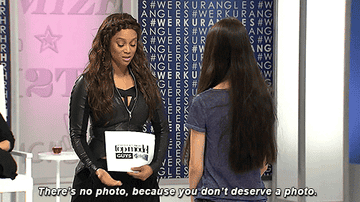
CBS Television Distribution
Maybe you've tried skin lightening or bleaching creams to "brighten you complexion," aka whitening your skin. Or, perhaps you've resorted to chemically straightening your hair out of frustration. Did you religiously live in colored contacts to hide brown eyes, or regularly dye your hair to look blonder?
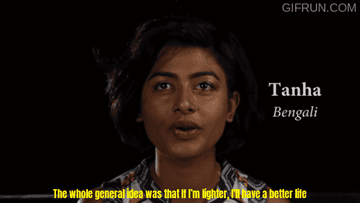
BuzzFeed Video
Speaking from personal experience, it adds another layer of complexity when your parent (or relatives) is the one pressuring you to make these changes and conform as they have. My mom always wanted me to lighten my hair and eyebrow color and thin out my hair. I also got bullied for having (very) visible body hair. Where's the break?

